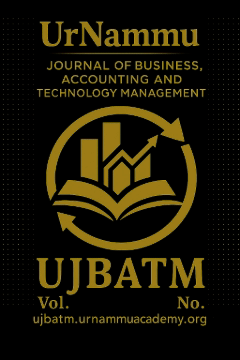Impact of Knowledge Application on Green Employee Behaviour: A Healthcare Developing Countries Perspective
Keywords:
Knowledge Application, Green Employee Behaviour, Healthcare, Sustainability, Organisational Learning, PLS-SEMAbstract
The healthcare sector faces increasing pressure to balance service delivery with environmental sustainability, particularly in developing countries where institutional constraints challenge traditional pathways to green transformation. This study investigates the role of knowledge application (Ka) in shaping green employee behaviours across four dimensions: green learning (GL), green voice (GV), individual practice (IP), and influence on others (IO). Drawing on the knowledge-based view of the firm and organisational learning theory, the research conceptualises Ka as a behavioural catalyst that transforms cognitive resources into sustainability-oriented actions. A longitudinal, two-wave survey design was employed involving 1,663 employees from private hospitals in Baghdad, Iraq. Data were analysed using Partial Least Squares Structural Equation Modelling (PLS-SEM). The findings reveal that Ka exerts a significant and positive effect on all four dimensions of green behaviour, with the strongest impact observed on IP. These results underscore the strategic value of applied knowledge not only in promoting efficiency or innovation but also in cultivating an environmentally conscious workforce. The study advances theoretical discourse by positioning Ka as a central mechanism in organisational sustainability. It also contributes to the growing body of empirical evidence from under-researched contexts, offering practical insights for healthcare leaders, sustainability managers, and policy-makers. Integrating Ka into training, leadership, and performance systems may serve as a low-cost yet high-impact strategy for embedding green behaviour across healthcare institutions.
Downloads
Published
How to Cite
Issue
Section
License
Copyright (c) 2025 UrNammu Journal of Business, Accounting and Technology Management

This work is licensed under a Creative Commons Attribution 4.0 International License.









